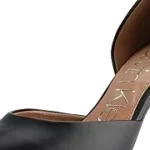Are you curious about why some watches come with a hefty price tag? In this intriguing topic, we will explore the factors that contribute to the high cost of certain timepieces. From exquisite craftsmanship to rare materials, join us as we unravel the secrets behind the allure and expense of luxury watches.
Watches have evolved from mere timekeeping devices to coveted symbols of status and style. The price of a watch can vary greatly depending on several key factors. Intricate detailing, such as hand-engraved dials or gemstone embellishments, requires skilled artisans who dedicate countless hours to create these masterpieces. Additionally, the use of precious metals and rare materials like diamonds or sapphires can significantly drive up the price. Join us on this captivating journey as we delve into the world of luxury watches and uncover the reasons behind their extravagant price tags.
Expensive watches often have high-quality materials, exquisite craftsmanship, and prestigious brand names, which contribute to their hefty price tags. Luxurious materials like gold, diamonds, and sapphire crystals are used, and expert artisans spend countless hours hand-assembling and finishing each watch. Additionally, renowned watchmakers invest heavily in research and development to create innovative movements and complications. These factors, along with exclusivity and limited production, drive up the cost of some watches.
Why are some watches so expensive?
When it comes to the high price tags on certain watches, there are several factors that contribute to their cost. The first and most obvious factor is the brand name. Luxury watch brands such as Rolex, Patek Philippe, and Audemars Piguet have a long-standing reputation for producing high-quality timepieces, and their brand value alone can significantly drive up the price. These brands invest heavily in craftsmanship, research, and development to ensure that every watch they produce is of the highest standard.
Another reason for the high cost of some watches is the materials used in their construction. Luxury watches often incorporate precious metals like gold or platinum, which not only add to the aesthetic appeal but also increase the intrinsic value of the watch. Additionally, some watches feature rare and exotic materials, such as meteorite dials or diamond-encrusted cases, which further contribute to their exclusivity and price.
What makes a watch more expensive than others?
The price of a watch can vary greatly depending on various factors. One of the main factors that contribute to the price difference is the movement or the mechanism inside the watch. Watches with mechanical movements, especially those with intricate complications like tourbillons or perpetual calendars, require exceptional skill and craftsmanship to produce, making them more expensive than watches with quartz or automatic movements.
Another factor that affects the price is the level of craftsmanship involved in the watch’s production. Higher-end watches are often assembled and finished by hand, with each component meticulously inspected and adjusted for optimal performance. This level of attention to detail and the time-consuming nature of the process adds to the overall cost of the watch.
Are expensive watches worth it?
Whether an expensive watch is worth the price tag depends on individual preferences and priorities. For watch enthusiasts and collectors, the craftsmanship, heritage, and exclusivity associated with luxury watches can be worth the investment. These watches often retain their value over time and can even appreciate in value, making them a potential investment opportunity.
On the other hand, for someone who simply needs a reliable timekeeping device, an expensive watch may not be necessary. There are many affordable watches available on the market that offer accurate timekeeping and durability without the hefty price tag. Ultimately, it comes down to personal taste, budget, and the value one places on the intangible qualities associated with luxury watches.
What makes a watch valuable?
Several factors contribute to the value of a watch. The brand’s reputation and heritage play a significant role. Watches from established and revered brands often hold their value well and can even appreciate over time. Rarity is another factor that affects a watch’s value. Limited-edition or discontinued models tend to be more valuable due to their scarcity in the market.
The condition of the watch also impacts its value. Well-maintained watches with original parts and minimal signs of wear command higher prices. Additionally, the materials used in the watch’s construction can influence its value. Precious metals like gold or platinum increase the intrinsic value, while precious stones like diamonds can add significant worth to a watch.
Why are luxury watches so expensive compared to regular watches?
Luxury watches are expensive compared to regular watches primarily because of the craftsmanship, materials, and brand reputation associated with them. Luxury watch brands invest a significant amount of time and resources into designing and producing watches that exude elegance and precision. They employ highly skilled artisans and watchmakers who meticulously hand-assemble and finish each watch.
In terms of materials, luxury watches often feature precious metals like gold or platinum, which have higher intrinsic values than the materials used in regular watches. The use of high-quality materials not only adds to the aesthetic appeal but also enhances the durability and longevity of luxury watches.
What are some of the most expensive watch brands?
There are several watch brands known for producing some of the most expensive timepieces in the world. Rolex, Patek Philippe, Audemars Piguet, and Richard Mille are among the most renowned luxury watch brands. These brands have a long-standing reputation for producing exceptional timepieces with exquisite craftsmanship and precision.
Other notable luxury watch brands include Jaeger-LeCoultre, Vacheron Constantin, A. Lange & Söhne, and Hublot. These brands are known for their innovation, unique designs, and use of high-quality materials, all of which contribute to the high price tags associated with their watches.
What is the difference between a luxury watch and a regular watch?
There are several differences between luxury watches and regular watches. Firstly, luxury watches are often made by renowned watchmakers who have a long history and reputation for producing high-quality timepieces. These brands often employ intricate mechanical movements and complications, which are not commonly found in regular watches.
Luxury watches also tend to use higher-quality materials in their construction. Precious metals like gold and platinum are often incorporated, adding to the aesthetic appeal and inherent value of the watch. In contrast, regular watches typically use more affordable materials such as stainless steel or plastic.
What factors affect the price of a luxury watch?
Several factors contribute to the price of a luxury watch. The brand reputation is one of the most significant factors, as renowned and established brands command higher prices due to their heritage and craftsmanship. The complexity of the watch’s movement and complications also affects the price, as more intricate mechanisms require greater skill and time to produce.
The materials used in the watch’s construction are another factor. Luxury watches often incorporate precious metals and rare materials, which increase the cost. Additionally, the level of craftsmanship and finishing involved in the production of the watch can significantly impact its price, as watches assembled and finished by hand tend to be more expensive.
Why do some luxury watches have such long waiting lists?
Some luxury watches have long waiting lists due to their limited production quantities and high demand. Luxury watch brands often create a sense of exclusivity by deliberately restricting the availability of certain models. This scarcity, combined with the brand’s reputation and desirability, leads to high demand and subsequently long waiting lists.
Furthermore, the intricate craftsmanship and meticulous attention to detail involved in producing luxury watches contribute to the time it takes to make each piece. Limited production capabilities and the need for quality control further extend the waiting times for these highly sought-after timepieces.
What are complications in watches?
In the context of watches, complications refer to any additional functions or features beyond basic timekeeping. These complications can range from simple date displays or chronographs to more complex mechanisms like perpetual calendars, moon phases, or tourbillons.
Each complication adds a layer of complexity to the watch’s movement, requiring additional gears, levers, and springs to perform the desired function. The presence of complications often indicates superior craftsmanship and technical expertise, making watches with complications more expensive than those without.
Why do luxury watches hold their value?
One of the reasons luxury watches hold their value well is the reputation and heritage associated with the brands that produce them. Established luxury watch brands have a loyal following, and demand for their watches remains high, even in the pre-owned market.
Moreover, luxury watches are often made with high-quality materials and undergo meticulous craftsmanship, ensuring their longevity and durability. This durability, combined with the brand’s reputation, contributes to the desirability and value retention of luxury watches.
What is the difference between a mechanical and quartz watch?
The main difference between a mechanical and quartz watch lies in their movement or mechanism. Mechanical watches are powered by a complex system of gears and springs, which require manual winding or the motion of the wearer’s wrist to keep them running. In contrast, quartz watches are powered by a battery and utilize electronic circuitry to keep time accurately.
Mechanical watches are often favored by watch enthusiasts for their craftsmanship and traditional appeal. They require regular maintenance and occasional winding to keep them running accurately. Quartz watches, on the other hand, are known for their accuracy and low maintenance, as they rely on batteries that can last for years.
What are the different types of watch movements?
There are three main types of watch movements: mechanical, quartz, and automatic. Mechanical movements, also known as manual movements, rely on mechanical components such as gears and springs to keep time. These movements require manual winding to keep the watch running.
Quartz movements, as mentioned earlier, use electronic circuitry and a battery to keep time accurately. These movements are known for their accuracy and low maintenance.
Automatic movements, also known as self-winding movements, are similar to mechanical movements but have the added feature of a rotor that winds the watch automatically with the motion of the wearer’s wrist. This eliminates the need for manual winding and provides convenience.
What is the significance of Swiss-made watches?
Swiss-made watches are highly regarded in the watch industry due to the long-standing reputation of Swiss craftsmanship and precision. To be labeled as “Swiss-made,” a watch must meet strict criteria set by the Swiss government. These criteria include using Swiss movement, having at least 60% of production costs incurred in Switzerland, and undergoing final inspection in Switzerland.
The “Swiss-made” label is associated with superior quality and attention to detail. Swiss watchmaking has a long history dating back centuries, and many of the world’s most prestigious watch brands are based in Switzerland. Swiss-made watches are often considered a mark of excellence and are highly sought after by watch enthusiasts and collectors.
What is the difference between a watch and a timepiece?
The terms “watch” and “timepiece” are often used interchangeably, but there is a subtle difference between them. A watch typically refers to a device worn on the wrist, designed primarily for timekeeping. It can be either mechanical or quartz, and its main function is to display the time.
On the other hand, a timepiece is a broader term that encompasses both watches and clocks. Timepieces are often associated with luxury and craftsmanship and may include additional complications or features beyond basic timekeeping. While all watches can be considered timepieces, not all timepieces are watches.
What are the advantages of buying a luxury watch?
There are several advantages to buying a luxury watch. Firstly, luxury watches are often made with superior craftsmanship and high-quality materials, ensuring durability and longevity. This means that the watch is likely to last for many years, providing value for money in the long run.
Additionally, luxury watches are often associated with prestige and exclusivity. Owning a luxury watch can make a statement and serve as a status symbol. These watches are often recognized and appreciated by fellow watch enthusiasts and collectors, fostering a sense of community and shared passion.
What are the disadvantages of buying a luxury watch?
While there are many advantages to buying a luxury watch, there are also a few potential disadvantages to consider. The most obvious drawback is the high cost of luxury watches. These timepieces can be significantly more expensive than regular watches, making them inaccessible to some budget-conscious buyers.
Another disadvantage is the need for regular maintenance and servicing. Luxury watches, especially mechanical ones, require periodic servicing to ensure optimal performance. The cost of servicing can add up over time and should be taken into account when considering the purchase of a luxury watch.
How can you differentiate between a genuine luxury watch and a counterfeit?
Differentiating between a genuine luxury watch and a counterfeit can be challenging, as counterfeiters have become increasingly sophisticated in replicating the appearance of authentic watches. However, there are several telltale signs to look out for.
Firstly, examine the quality of the watch. Genuine luxury watches are made with high-quality materials and undergo meticulous craftsmanship. Counterfeit watches often have inferior materials and poor finishing.
Secondly, verify the authenticity of the brand. Research the brand’s official website and authorized dealers to ensure that the watch you are considering is sold by legitimate sources.
Lastly, if possible, have the watch authenticated by an expert or an authorized dealer. They can inspect the watch’s movement, serial numbers, and other details to confirm its authenticity.
What factors contribute to a luxury watch’s accuracy?
Several factors contribute to the accuracy of a luxury watch. Firstly, the quality and precision of the movement play a significant role. Mechanical movements, especially those with chronometer certification, are known for their accuracy and reliability.
The external influences on the watch, such as temperature, magnetic fields, and shocks, can also affect accuracy. Luxury watches often incorporate anti-magnetic materials and shock-resistant mechanisms to minimize these external influences.
Regular maintenance and servicing also help maintain the accuracy of a luxury watch. Over time, the lubricants in the movement can degrade, affecting its performance. Periodic servicing ensures that the watch is properly cleaned, lubricated, and adjusted for optimal accuracy.
Why do luxury watches require regular maintenance?
Luxury watches, especially mechanical ones, require regular maintenance to ensure their longevity and optimal performance. Several factors contribute to the need for maintenance.
Firstly, mechanical movements consist of numerous tiny components that interact with one another, causing friction and wear over time. Proper maintenance includes cleaning and lubricating these components to reduce friction and ensure smooth operation.
Secondly, luxury watches are often exposed to various external factors such as dust, moisture, and temperature fluctuations. Regular maintenance involves removing these contaminants, checking for any water damage, and making any necessary repairs.
Lastly, luxury watches with intricate complications require additional attention and care. Servicing these complications ensures that they function correctly and accurately.
What are the different types of watch complications?
There are numerous types of watch complications, each offering additional features or functions beyond basic timekeeping. Some common watch complications include:
- Chronograph: A complication that allows for the measurement of elapsed time.
- Perpetual Calendar: A complication that automatically adjusts for leap years, displaying the correct date, day, month, and year.
- Moon Phase: A complication that displays the current phase of the moon.
- Tourbillon: A complication that offsets the effects of gravity on the watch’s movement, enhancing accuracy.
- Minute Repeater: A complication that chimes the time when activated.
- Power Reserve: A complication that indicates the amount of remaining power in the watch’s mainspring.
What is a limited-edition watch?
A limited-edition watch is a timepiece produced in a restricted quantity, often with a specific design or feature that distinguishes it from regular production models. These watches are typically numbered and come with a certificate of authenticity to confirm their limited production status.
Limited-edition watches are highly sought after by collectors and enthusiasts due to their rarity. The limited availability and exclusivity associated with these watches often drive up their value, making them desirable from both a functional and investment standpoint.
What are the different types of watch materials?
Watches are made with a wide range of materials, each with its own unique properties and characteristics. Some common watch materials include:
- Stainless Steel: A durable and corrosion-resistant material commonly used in watch cases and bracelets.
- Gold: A precious metal known for its beauty and value. Gold watches often use 18K or 14K gold.
- Platinum: A rare and dense metal that is highly valued in watchmaking for its durability and lustrous appearance.
- Titanium: A lightweight and hypoallergenic metal that is known for its strength and corrosion resistance.
- Ceramic: A scratch-resistant and durable material commonly used in watch bezels and cases.
What is the significance of a watch’s water resistance?
The water resistance of a watch indicates its ability to withstand exposure to water without damage. It is an essential feature
What Makes a Watch Expensive? | Watch Value Explained (What You Need to Know)
In conclusion, the high price tag of some watches can be attributed to several factors. Firstly, the craftsmanship and attention to detail that goes into creating these timepieces is unparalleled. Luxury watchmakers employ highly skilled artisans who meticulously handcraft each component, resulting in a timepiece that is not only functional but also a work of art. This level of craftsmanship requires extensive training and expertise, which inevitably drives up the cost.
Secondly, the materials used in luxury watches contribute to their high price. Many high-end watches are made from precious metals such as gold, platinum, or titanium, which are not only expensive but also add to the aesthetic appeal and longevity of the timepiece. Additionally, some luxury watch brands incorporate rare gemstones or diamonds into their designs, further increasing their value.
Lastly, the brand reputation and exclusivity of luxury watches play a significant role in their price tag. Established watch manufacturers with a long history of producing exceptional timepieces often command higher prices due to their brand prestige. Additionally, limited production runs and exclusive collaborations with renowned designers or celebrities can drive up the demand and price of a watch.
In summary, the high cost of some watches can be justified by the exceptional craftsmanship, premium materials, and brand reputation that they offer. These timepieces are not just functional accessories but also symbols of luxury and refinement. So, while their price may seem extravagant, owning a luxury watch is a testament to one’s appreciation for fine craftsmanship and timeless elegance.






